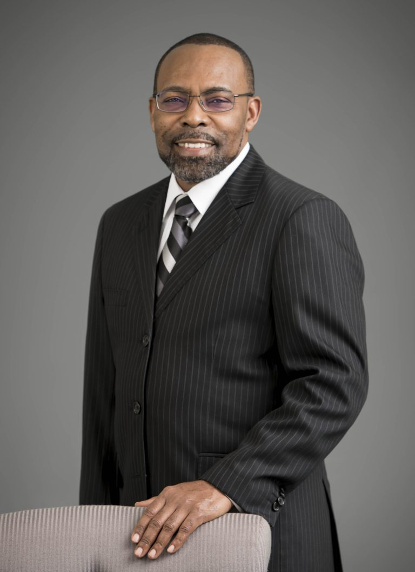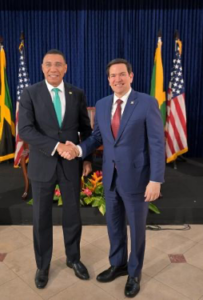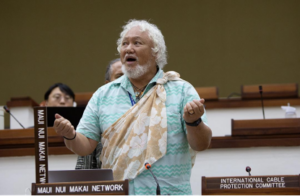Justice Winston Anderson, a judge at the Caribbean Court of Justice (CCJ) has been selected as its next president and is to replace outgoing president Justice Adrian Saunders, who will officially retire from office on 3 July 2025.
Anderson is a citizen of Jamaica and Barbados . He obtained his Bachelor of Laws in 1983 from The University of the West Indies (The UWI). In 1984, he proceeded on the Commonwealth and Chevening Scholarships to Cambridge University, England and graduated in 1988 with a Doctorate in Philosophy majoring in International and Environmental Law. Also, in 1988, he was called to the Bar of England and Wales, as a Barrister of the Honourable Society of Lincoln’s Inn and was called to the Bar of Barbados in 1989.
Justice Anderson rejoined The UWI’s Faculty of Law as a lecturer in 1988 until 2003. During his tenure he served as Deputy Dean, Head of the Teaching Department of Law, and UWI Senior Lecturer in Law. On 15 June 2010, Justice Anderson was sworn in as Judge of the Caribbean Court of Justice and is very active in the fields of judicial education and judicial reform. He is currently Chairman of the CCJ Academy for Law.
The decision to appoint Justice Anderson was made at the 48th Regular Meeting of the Conference of Heads of Government of CARICOM held in Barbados from 19-21 February 2025 with the Heads accepting the recommendation submitted by the Regional and Judicial Legal Services Commission (RJLSC). The RJLSC is an independent body responsible for the hiring, disciplining, and setting of employment terms and conditions for Court staff and Judges.
In terms of the President of the Court, it submits a recommendation to the Heads of Government who then vote to select the president. A successful candidate must receive three-quarters majority vote. Justice Anderson was selected after a competitive process in which applications were received from six males and one female candidate from various Commonwealth states including Barbados, Botswana, Jamaica/Barbados, Nigeria, and Sri Lanka. Speaking of the selection, President Saunders congratulated Justice Anderson stating, “Justice Anderson’s wealth of experience, intellectual rigour, and dedication to the rule of law have significantly contributed to the development of the Court’s jurisprudence. His leadership will undoubtedly strengthen the CCJ’s commitment to delivering justice of the highest standard and furthering its mission to serve the region with independence, fairness, and integrity.” It is anticipated that Justice Anderson will be sworn in as CCJ President on 6 July 2025 in Jamaica.
Jamaica’s Opposition party has been pushing for Jamaica to move forward with the CCJ as the country’s final appellate court. Opposition leader and People’s National Party (PNP) president, Mark Golding, has made it clear that his party will not support Jamaica becoming a republic if the United Kingdom (UK) Privy Council is to remain the country’s final appellate court. However, his recommendation has raised concerns in the Christian community.
Among those who believe Jamaica should retain the UK-based Privy Council are attorneys Shirley Richards and Maurice Saunders, who asserted in a Letter to the Editor in 2023 that there are weaknesses and flaws in the CCJ that must be addressed and corrected before it can be adopted as Jamaica’s final appellate court.
“What of the fact that the President of the CCJ has said that the CCJ is an “executing agency” for donor funds? To make it worse, one source of such funds is UN Women, an organisation which engages in outright LGBT+activism!” they argued.
Richards, who is a past president and member of the Lawyers Christian Fellowship, had stated in the past that while politically there would seem to be a strong argument for Jamaica to replace the Privy Council with the CCJ, there is concern that the CCJ has taken unto itself an activist role whose aim is to further “liberate” the country from colonialism. She also wondered whether a candidate for a judicial post within the CCJ would be successful if he or she is a member of an organisation that opposes homosexuality given the CCJ Code of Judicial Conduct, which states that:
5.6 Judges shall not be a member of, nor associate with any society or organisation which practises, or may reasonably be perceived as practising invidious discrimination on the basis of any irrelevant consideration. The “the terms “sexual orientation” and “gender identity” are referred to in code 5.1 as being included in the term “irrelevant consideration.”






